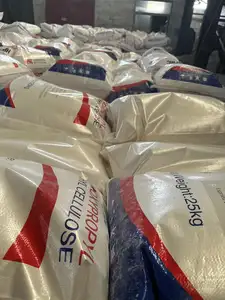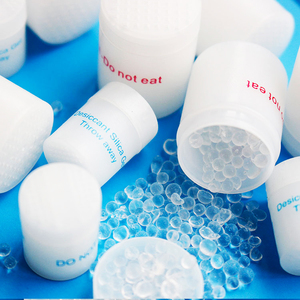
All categories
Featured selections
Trade Assurance
Buyer Central
Help Center
Get the app
Become a supplier

(26 products available)














































Hydrous aluminum silicate occurs in diverse types, such as:
Microscopic Hydrous Aluminum Silicate
This type is a fine powder that is largely translucent to opaque and with a soft texture that feels silky or smooth. It can easily be delineated using the Mohs hardness scale as possessing a hardness of 1 to 3 due to its softness. On the very small end of the scale, microscopic hydrous silicate is a phyllosilicate mineral composed of silicate sheets and has a layered structure. It can be very easily identified to contain water and aluminum and is commonly known as kaolin.
Feldspar
This is one of the most common and abundant minerals found in the Earth's crust. Hydrous aluminum silicate occurs in two main varieties of feldspar, such as potassium feldspar and plagioclase. Potassium feldspar appears as a pearly shine and has a hardness of about 6 on the Mohs' scale. Plagioclase, on the other hand, occurs as a series of tectosilicate minerals that form the feldspar group. It is hard and typically possesses an opalescent, vitreous, or glassy luster.
Talcs
Common talc is a magnesium silicate layer silicate mineral which when identified can be seen to have a soft feel and can come in different colors, which include white, grey, green, and even brown. Hydrous aluminum silicate commonly has a Mohs hardness of 1.0 and has a greasy, smooth feel. Talc also has a creamy, soft, and powdery texture.
Vermiculite
This is a mineral that is composed of hydrated magnesium, aluminum, and iron silicate. When it comes to the expansion of vermiculite, it has a marble to a light gray color and sometimes exhibits golden or brown hues. Its Mohs hardness varies from 1.0 to 2.5 depending on the particular source from which it has been mined. Natural vermiculite can expand and achieve a much lighter and looser structure when heated to high temperatures.
Kaolinite
Hydrous aluminum silicate typically oxidizes an internal porous layer silicate mineral. This type of silicate ion sheet structure mineral is commonly known to exhibit a hardness of 2 to 2.5 on the Mohs scale and to have a dull microgloss to earthy luster. Kaolinite occurs as a white to pale colored powder and earthy soil. It also expands and occupies a volume of about 12% to 15% of its initial volume upon heating to around 980 °C.
Hydrous aluminum silicate has diverse applications, such as:
Ceramics
In the ceramic industry, hydrous aluminum silicate is used as a plasticizer, flux, and filler. Kaolin, for instance, is commonly utilized in the production of porcelain, stoneware, and other ceramic materials. The silicate's controlled firing, plasticity, and whiteness contribute to the quality and durability of the end products.
Paints and Coatings
In paints and surface coatings, hydrous aluminum silicate is primarily used as a filler and pigment. By providing texture, hiding power, and opacity. Thus improving the paint's viscosity, workability, and overall appearance. Additionally, the silicate helps to enhance the paint's durability and weather resistance, which makes it ideal for outdoor applications.
Plastics and Rubber
In the plastics and rubber industries, hydrous aluminum silicate is used as a reinforcing filler. It helps improve tensile strength, dimensional stability, and overall durability in diversified rubber compounds. In plastics, the silicate aids in the enhancement of thermal stability and a reduction in material costs.
Cosmetics
Hydrous aluminum silicate is commonly found in cosmetic products such as lotions, sunscreens, and makeup. It acts as a thickening agent, as well as a filler and absorbent. This allows the product to achieve a smooth, matte finish and helps to absorb excess oil. This therefore enables the cosmetic to provide a better product feel and longer wear.
Paper Industry
In the paper industry, hydrous aluminum silicate is primarily used as a filler and coating pigment. It helps improve the paper's brightness, smoothness, and opacity. The silicate also enables better ink retention and a fine surface finish in printed materials. Its fine texture and lamellar shape contribute to the surface qualities of coated paper.
Thermal Insulation
Hydrous aluminum silicate can be found in insulation materials such as blankets and boards. This works by reducing heat transfer and providing thermal resistance in many industrial applications. Due to its low thermal conductivity, it becomes an ideal component for environments that require efficient energy conservation and protection from extreme temperatures.
Hydrated aluminum silicate comes with numerous benefits to give, such as:
Dermatological Use
One of the main benefits of hydrous aluminum silicate used in cosmetics and personal care products is its ability to absorb moisture and, at the same time, improve product texture. This silicate helps in the reduction of oily shine on the skin and allows makeup to stay longer without feeling greasy. This property is especially effective in lotions, creams, and foundations.
Industrial Filler
In industrial applications, aluminum silicate is used as a filler material in paints, plastics, and rubber. This has the effect of minimizing production costs without necessarily compromising quality. The silicate provides bulk and improves the texture and stability of these products. Moreover, the silicate itself as a material is relatively inexpensive when compared to other fillers available in the market. This helps to lower the overall cost of manufacturing and reduces product weight in rubber and plastic.
Porcelain and Ceramics
Hydrous aluminum silicate is commonly known to improve the workability and firing qualities of clay in the ceramic industry. Thus, the resulting product has improved durability and a finer surface. In this way, that which is characterized as high-quality ceramic ware is produced. In this particular field, kaolinite's ability to create a strong bond during firing is very critical in producing porcelain and stoneware with great strength.
Thermal Insulation
Hydrous aluminum silicate is tailored for expanded vermiculite, a lightweight and efficient thermal insulator used in construction and other industries. This has the additional effect of reducing energy expenses and increasing resource efficiency. Vermiculite can be afforded the ability to be non-toxic and to withstand very high temperatures, making it ideal for both industrial and residential insulation.
Natural Origin and Non-Toxicity
Hydrous aluminum silicate is mined naturally and is composed of abundant minerals. Therefore, its inclusion in a myriad of products makes it readily accessible and, at the same time, non-toxic. Due to this reason, it is safe for use in cosmetics and construction insulation applications, making it a favorable option in areas where safety and environmental concerns are critical.
Here are some key factors to consider when choosing hydrous aluminum silicate:
Purity and Quality
Choosing hydrous aluminum silicate with high purity is very important for any application. Contaminants are capable of affecting performance in a negative manner, especially in industries such as cosmetics, where product quality standards are very crucial. To ensure that the selected silicate has no pollutants, verify if it has been certified by an authority and check the grades that have been recommended for distinct uses. A trusted and reputable supplier is likely to offer products that have superior quality and consistency.
Particles Size and Texture
The particle size of hydrated aluminum silicate significantly influences the texture and effectiveness in different applications. For instance, in cosmetic products, fine particles are very preferred because they lead to smooth application and better absorption. In paints or plastics, the required particle size is dependent on the compatibility and dispersion with other components. Ensure that the silicate selected has the proper particle size for the intended purpose.
Supplier Reputation and Reviews
When purchasing hydrated aluminum silicate in bulk, it is essential to research the supplier's reputation. Look for reviews or testimonials from other customers to ensure that the supplier provides consistent quality, timely deliveries, and good customer support. A reliable supplier can make a huge difference in the overall satisfaction and success of any business. This is especially the case when selecting silicate in bulk for industrial uses.
Compatibility
Hydrous aluminum silicate is ideal for use in a wide range of applications in cosmetics, paint, and ceramics to plastic and thermal insulation. However, ensure that the silicate selected is compatible with other materials used in the target process or product. For instance, in the cosmetic field, compatibility with other elements used in makeup formulations, such as powders and creams, is essential so as to avoid clumping and product separation. It is also vital to consider the application that deals with industrial adhesives, where silicate might interact with glue and adhesive to either increase or decrease their effectiveness.
Application Requirements
Identify the specific needs for the application of hydrated aluminum silicate and evaluate them against the supplier's product specifications. These include purities, particle sizes, or forms that could either be powder or expanded. The details are what ensure the product will work efficiently as intended. For example, in the cosmetic formulation, the required texture and smoothness are significant for achieving the final product's success.
Hydrous aluminum silicate is a commonly preferred food additive because of its unique anti-caking properties.
Due to its unique features, it is applied in diverse foods to prevent clumping and ensure smooth, free-flowing texture in products like salt, sugar, and powdered spices.
The light and dry texture of the expanded vermiculite enables it to separate individual particles of powdered food in a powdered mixture. Thus, it prevents moisture from causing particle cohesion and clumping.
The usage of hydrated aluminum silicate in food by the general public is considered safe across various countries. However, products that contain this additive must bear the manufacturer's details and recommendations so consumers can make informed choices.
The anti-caking agent can be stored indefinitely in a sealed container in a dry atmosphere. It will gradually become denser if left exposed to air since it is hygroscopic.
Vermiculite-type hydrous aluminum silicate has a light and dry texture when compared to other types.